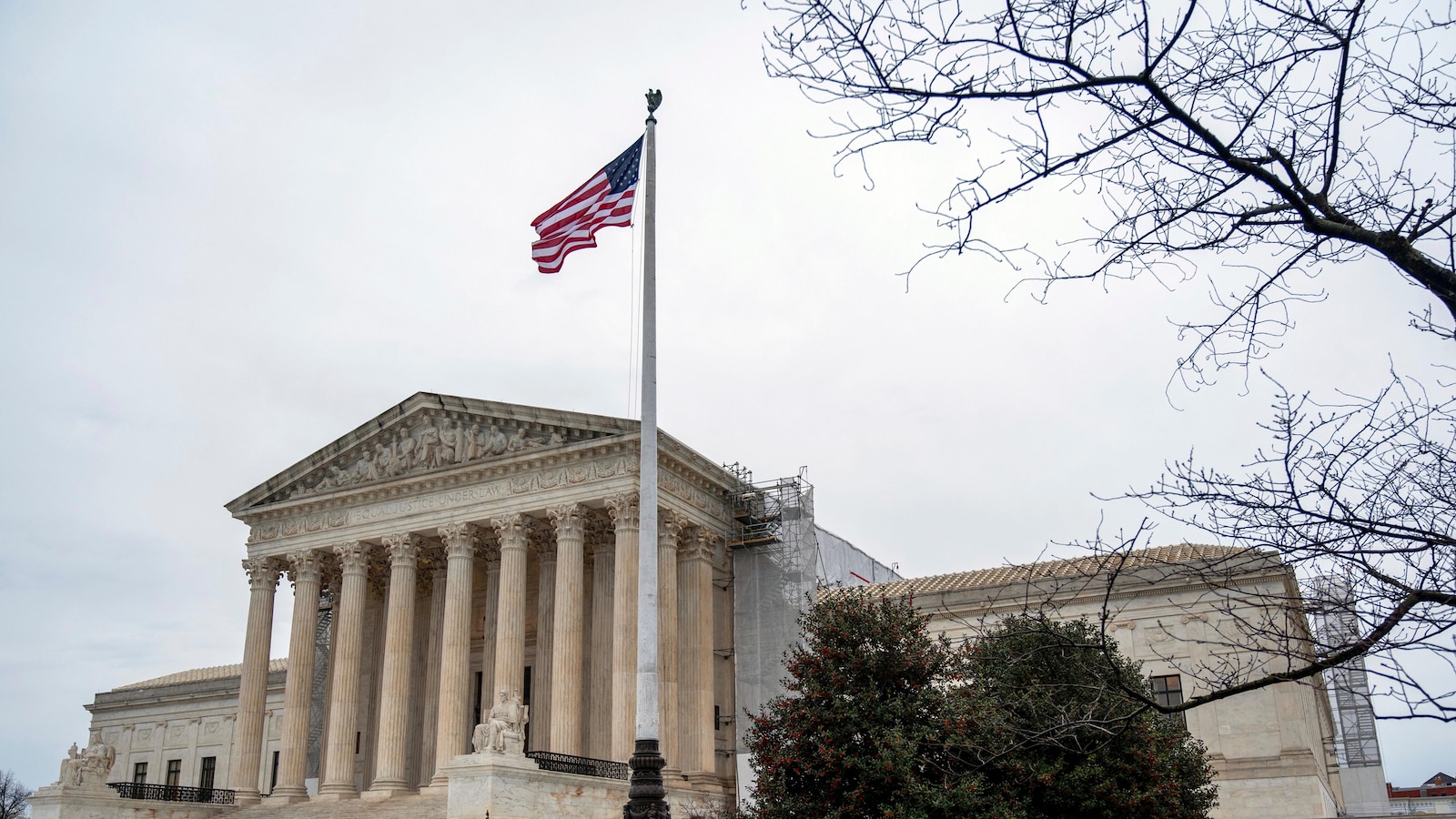
WASHINGTON — The Supreme Court ruled Friday that thousands of low-level drug dealers are ineligible for shortened prison terms under a Trump-era bipartisan criminal justice overhaul.
The justices took the case of Mark Pulsifer, an Iowa man who was convicted of distributing at least 50 grams of methamphetamine, to settle a dispute among federal courts over the meaning of the word “and” in a muddy provision of the 2018 First Step Act.
The law’s so-called safety valve provision is meant to spare low-level, nonviolent drug dealers who agree to plead guilty and cooperate with prosecutors from having to face often longer mandatory sentences.
Some courts had concluded the use of the word indeed means “and,” but others decided that it means “or.” A defendant’s eligibility for a shorter sentence depended on the outcome.
“Today, we agree with the Government’s view of the criminal-history provision,” Justice Elena Kagan wrote for the majority in the 6-3 decision that did not split the justices along liberal-conservative lines.
In dissent, Justice Neil Gorsuch referred to the First Step Act as possibly “the most significant criminal-justice reform bill in a generation.” But under the court’s decision, “thousands more people in the federal criminal justice system will be denied a chance—just a chance at” a reduced sentence, Gorsuch wrote, joined by Justices Ketanji Brown Jackson and Sonia Sotomayor.
Nearly 6,000 people convicted of drug trafficking in the 2021 budget year alone are in the pool of those who might have been eligible for reduced sentences, according to data compiled by the U.S. Sentencing Commission.
The provision lists three criteria for allowing judges to forgo a mandatory minimum sentence that basically looks to the severity of prior crimes. Congress wrote the section in the negative so that a judge can exercise discretion in sentencing if a defendant “does not have” three sorts of criminal history.
Before reaching their decision, the justices puzzled over how to determine eligibility for the safety valve — whether any of the conditions is enough to disqualify someone or whether it takes all three to be ineligible.
Pulsifer’s lawyers argued that all three conditions must apply before the longer sentence can be imposed. The government said just one condition is enough to merit the mandatory minimum.
Kagan wrote that the language “creates an eligibility checklist, and demands that a defendant satisfy every one of its conditions.”
Two of the three conditions applied to Pulsifer. The trial court and the St. Louis-based 8th U.S. Circuit Court of Appeals ruled he was eligible for a mandatory sentence of at least 15 years. He actually received a 13 1/2-year sentence for unrelated reasons.
Now 61, Pulsifer is not scheduled to be released from prison until 2031, according to federal Bureau of Prison records.
Congress could still change the law if it thinks the court was wrong.
The case is Pulsifer v. U.S., 22-340.
In a recent decision, the Supreme Court has affirmed mandatory prison sentences for certain low-level drug offenders. This ruling has sparked debate among legal experts, policymakers, and advocates for criminal justice reform.
The case in question involved a low-level drug offender who was convicted of possession of a small amount of drugs with intent to distribute. The defendant argued that the mandatory minimum sentence imposed by the court was unjust and disproportionate to the crime committed. However, the Supreme Court ultimately upheld the mandatory sentence, citing the need for consistency and deterrence in sentencing.
Proponents of mandatory prison sentences for drug offenses argue that they are necessary to combat drug trafficking and protect public safety. They believe that harsh penalties serve as a deterrent to would-be offenders and send a strong message that drug crimes will not be tolerated.
On the other hand, critics of mandatory sentencing laws argue that they disproportionately impact low-level offenders, many of whom are struggling with addiction or mental health issues. They argue that these individuals would be better served by treatment programs and rehabilitation services, rather than lengthy prison sentences.
Furthermore, opponents of mandatory sentencing laws point to the racial disparities in the criminal justice system, with people of color being disproportionately affected by harsh drug laws. They argue that these laws perpetuate systemic racism and contribute to mass incarceration.
In recent years, there has been a growing movement towards reforming the criminal justice system and reevaluating mandatory sentencing laws. Many states have passed legislation to reduce or eliminate mandatory minimum sentences for nonviolent drug offenses, in an effort to address the underlying issues of addiction and mental health.
Overall, the debate over mandatory prison sentences for low-level drug offenders is complex and multifaceted. While some argue that harsh penalties are necessary to deter drug crimes, others believe that a more compassionate and rehabilitative approach is needed. As the conversation around criminal justice reform continues, it is important to consider the impact of mandatory sentencing laws on individuals, communities, and society as a whole.


